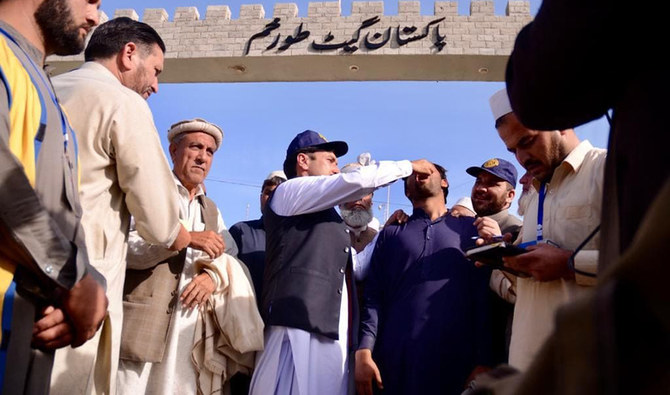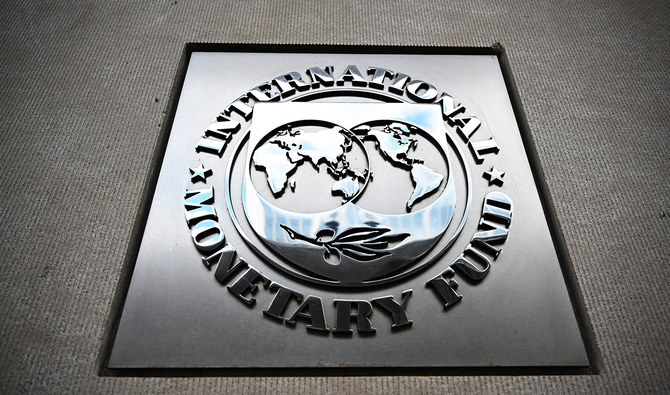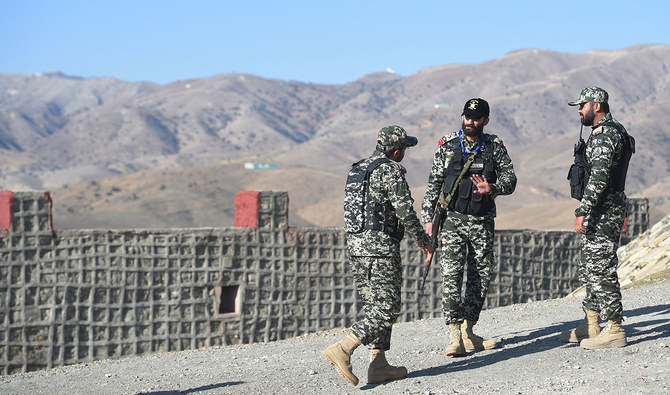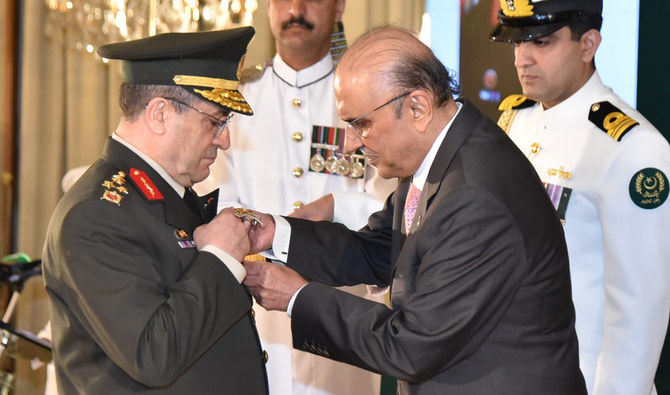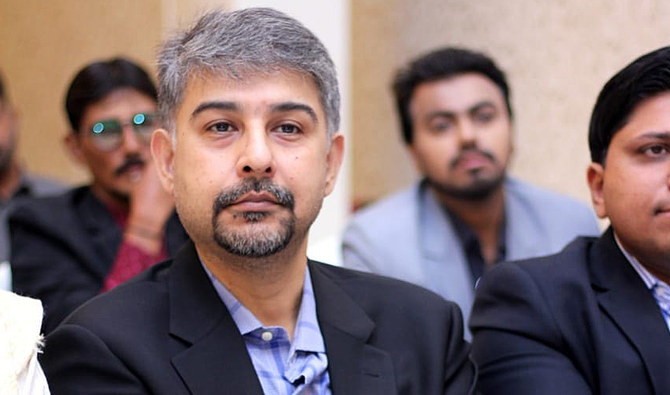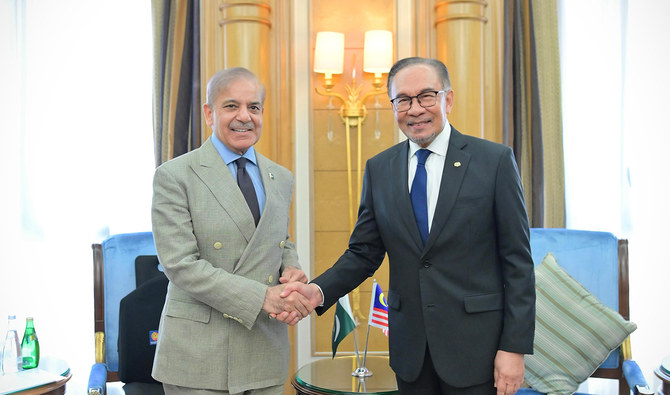PESHAWAR: Pakistan has established 16 points on its porous border with Afghanistan to vaccinate people crossing into the country, a senior official with the polio eradicating program said.
The move comes following a statement from Prime Minister Imran Khan on Wednesday, where he said polio was spreading into the country from its northwestern neighbor. Alongside Pakistan, Afghanistan and Nigeria remain the only other countries where poliovirus, an incurable disease that can only be prevented through multiple treatments of the vaccine given to children, is still characterized as a prevalent viral infection.
Abdul Basit, coordinator for the Emergency Operation Center (EOC) in Pakistan’s northwestern Khyber Pakhtunkhwa (KP) province, told Arab News that polio teams were available round-the-clock to administer polio drops to people entering Pakistan from Afghanistan.
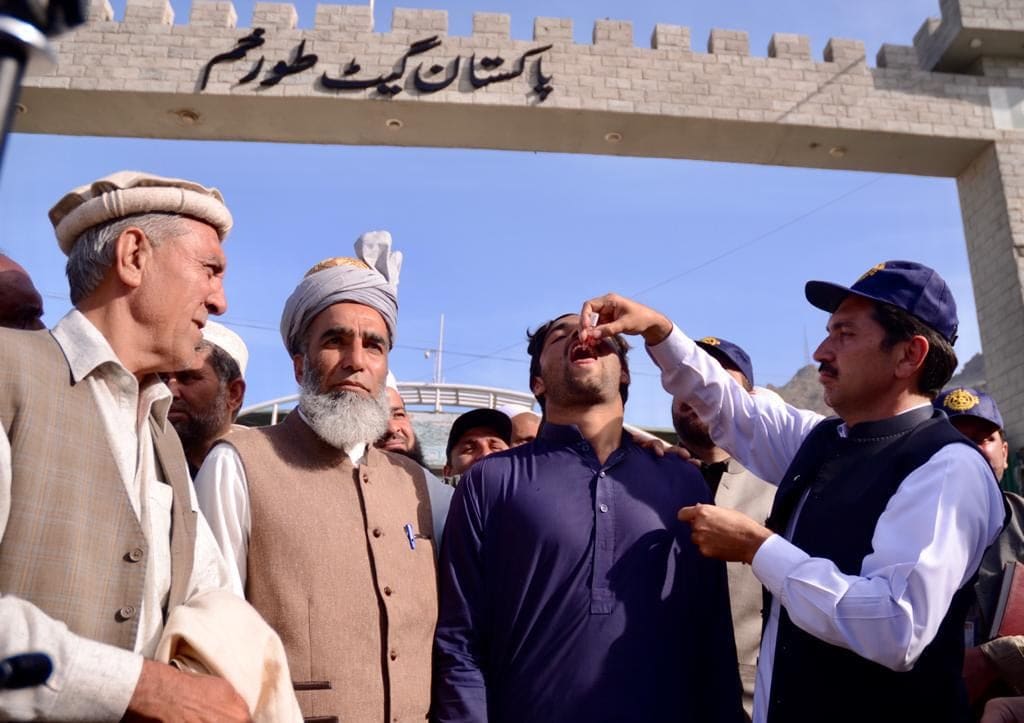
In this photo, a polio worker administers polio drops to an Afghan national at the Pak-Afghan Torkham border in July, 2019. (Photo Courtesy - Emergency Operation Center Khyber Pakhtunkhwa)
“We have deputed polio teams on 16 points with nine in KP and seven in Balochistan on borders between Pakistan and Afghanistan, vaccinating people crossing borders,” he said, and added that all age groups of people were being vaccinated at the most frequented border points: Torkham in KP, Chaman in Balochistan and another one at Angoor Ada in South Waziristan tribal district.
The EOC figure said a total of eight polio cases had been reported in the current year while in 2019, a total of 144 cases were reported countrywide.
Due to the infectious virus, which spreads through the orofecal transmission route, the movement of people between countries can spread the virus from one place to another.
The polio virus could survive in areas with low vaccination coverage, Abdul Basit said, adding that the refusal of parents was one of the biggest problems in Pakistan whereas in Afghanistan, the main reason for the prevalence of the virus was inaccessibility.

In this photo, a polio worker administers polio drops to an Afghan child on the Pak-Afghan Torkham border in July, 2019. (Photo Courtesy - Emergency Operation Center Khyber Pakhtunkhwa)
Dr. Mohammad Akram Shah, a district health officer in Swat who has worked extensively on polio eradication, told Arab News that like every public health initiative, success in eradicating the crippling disease depended on community acceptance and the program’s completion, with the full dose of drops administered over months.
“The main challenges Pakistan’s (polio) program is facing include community resistance, lack of quality frontline teams, localized religious insecurities, associated security risks, movement of population and inconsistent vaccination coverage,” he said.
Some Muslim clerics, especially in KP, have peddled stories that the vaccines are part of a Western plot to make Muslims sterile.
Those stories escalated after a CIA backed fake immunization campaign helped US forces track down and eliminate Al-Qaeda leader Osama bin Laden in 2011.
Since 2012, militant groups have killed nearly 100 health workers and their guards on the pretext that they are Western spies.
According to Shah, in the last few years, the transmission of polio virus across the borders of Pakistan and Afghanistan remained active but in 2019, it was Pakistan’s indigenous virus that continued to be the primary source of the infection.
Synchronized polio campaigns with Afghanistan and active deployment of anti-polio teams on border points between the two immediate neighbors would help contain the disease, Shah said.
“Currently, either strategic directions are wrong or implementing bugs are preventing the achievement of the goal,” he said and added that solely increasing pressure on the government would not be the wisest course of action.
“If the program is not yielding its desired results, the entire program needs to be reevaluated,” he said.



